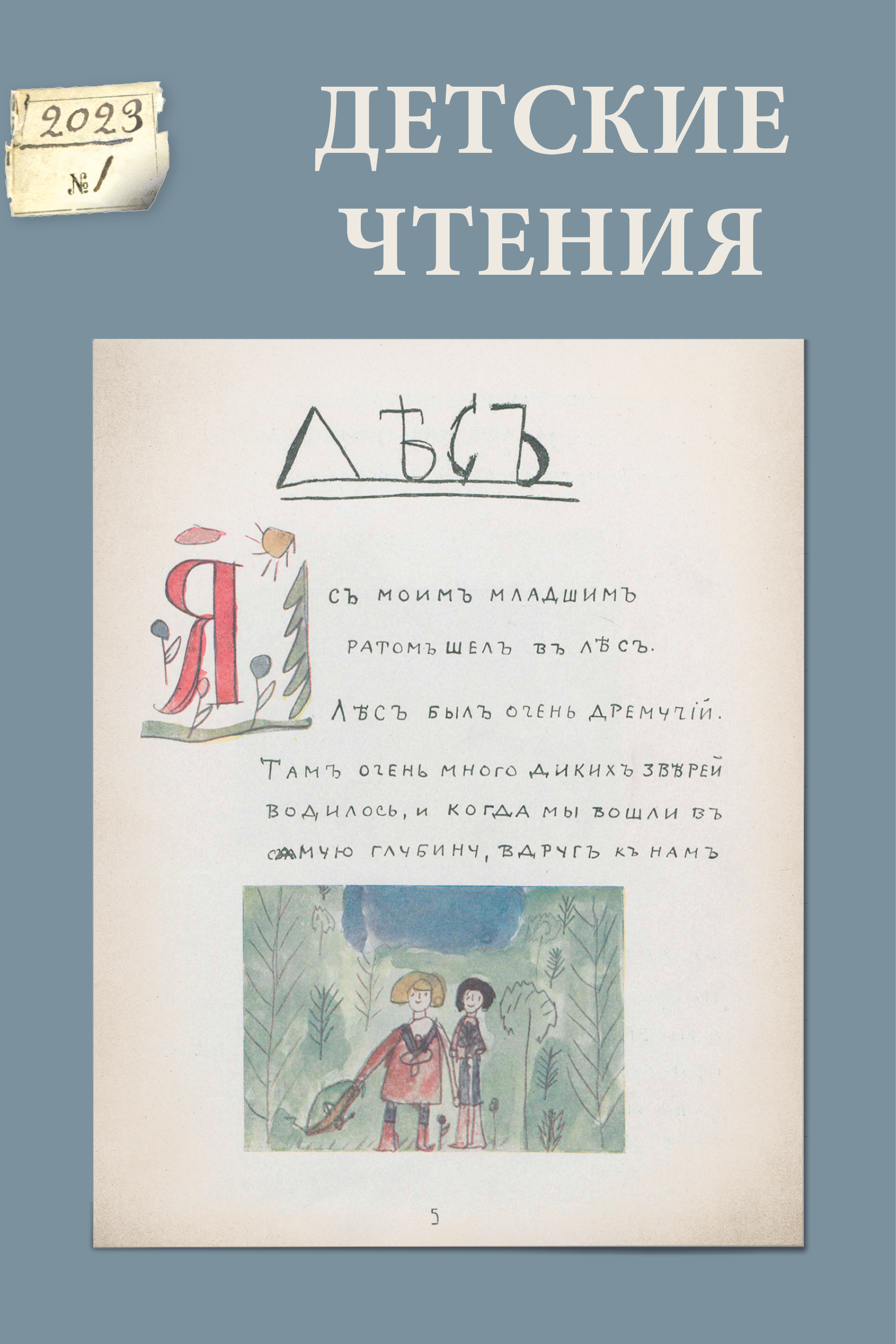SQUAD OF TALENTED CHILDREN
DOI:
https://doi.org/10.31860/2304-5817-2023-1-23-9-20Abstract
The introduction to the archival block offers a brief overview of the reflections of educators, writers, and psychologists on children’s creativity. At the beginning of the 20th century, interest in children’s writing was closely linked to solving educational tasks: using genres of personal writing (diary, letter, handwritten album/journal), educators hoped to develop students’ written speech. At the same time, children’s writing began to be endowed with independent value, as a result, the problem of immanent qualities of children’s creativity as a phenomenon began to be discussed. The nature of children’s writing has been considered from the point of view of originality/secondary. If free education teachers still saw aesthetic value in individual children’s creativity, then by the 1930s writers who patronized children’s writing stated on the one hand, the need for polishing children’s writing, and on the other hand, they fixed the inevitable influence of book and newspaper templates that deformed the “directness”, “organicity”, “authenticity”, “freshness” of children’s written language. The fascination with collective forms of creativity (not only in relation to children) in the first third of the 20th century was expressed in the emergence of such forms of organization of children’s self-expression as collective creative projects. Their support by adults led to publications with significant circulations of collections of children’s works. At the same time, the reflections of educators and writers revealed a jealous rejection of the consequences of publishing children’s work: “conceit” and “arrogance” of children. In the end, children’s creativity, recognized by educators as a legitimate way for a child to express their personality, by the end of the 1930s again began to be perceived primarily as an educational tool.
Keywords: children’s writing, creative self-expression, subjectivity of a child, collective co-creation, literary professionalization







